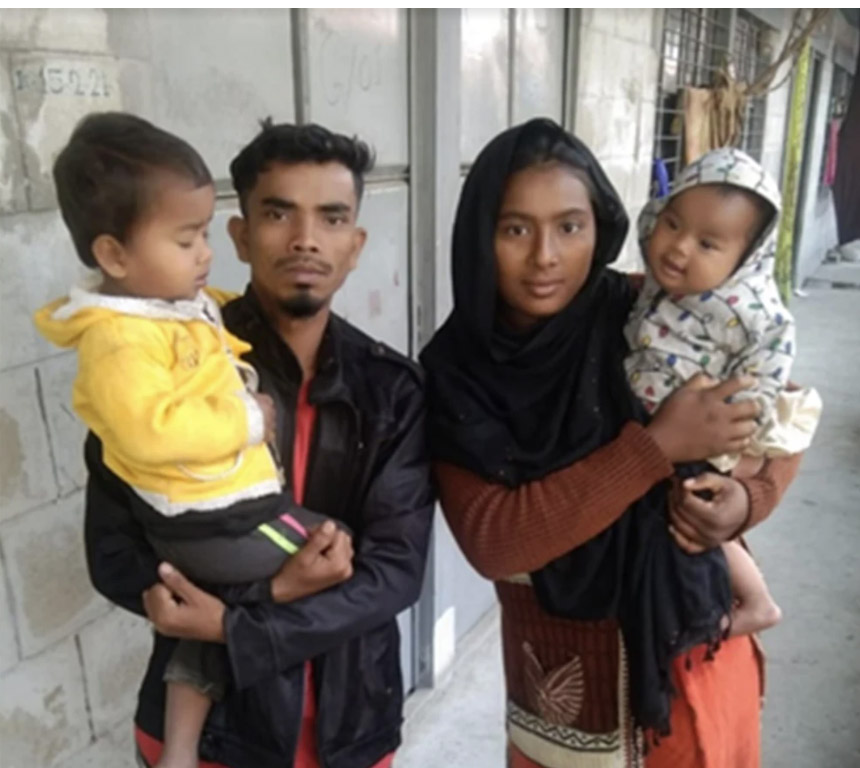Fatema’s family was forcefully displaced from Myanmar to Bangladesh in 1995, a few years before she was born. She lost her mother at a very young age; her father passed away when she was 10. Fatema had heard about the horror and oppression her parents had endured when they were forced to migrate. However, she came to know about the true extent of the brutality from some young Rohingya women who migrated to Bangladesh at the time of the genocide in 2017. Shocked, she could not sleep for several nights.
Fatema grew up in the Kutupalong area which houses Rohingya refugees. She married Rafique at a young age. Rafique is a day laborer whose petty income stretched thin to support his family. The family was struggling and decided to move to Bhasan Char in February 2021, the island where the Bangladeshi government is settling Rohingya refugees in order to address overcrowding in the Kutupalong Camp. Fatema joined the FDMN (forcefully displaced Myanmar nationals) association. This association is teaching its members to be self-sufficient through different initiatives. She started to save 250 grams of rice (saved per family/member/month) under the “Rice Bank” program. Under this program, every member of a family saves 250 grams of rice every month from the food assistance they receive from different NGOs. At present, about 250 members from 520 families are saving rice every month. The collected rice is sold through an auction in the presence of the governing body and general body members of the association. The proceeds serve as capital with which members can begin entrepreneurship initiatives.
Fatema also received a small parcel of land for planting vegetables as well as training on cultivating crops. Now, she sells the harvest and uses some for her family’s consumption. She also received five ducks and she sells their eggs to add to her income. She plans to increase the number of the ducks by hatching some of the eggs. In the last general meeting of the FDMN association, she found out that it has accumulated more than 20,000 Taka from the rice bank program. Fatema is thinking of applying for a loan from the association to start a small business and reduce the family’s dependency on her husband’s income. She is happy and grateful to be gradually on her way to self-reliance.

